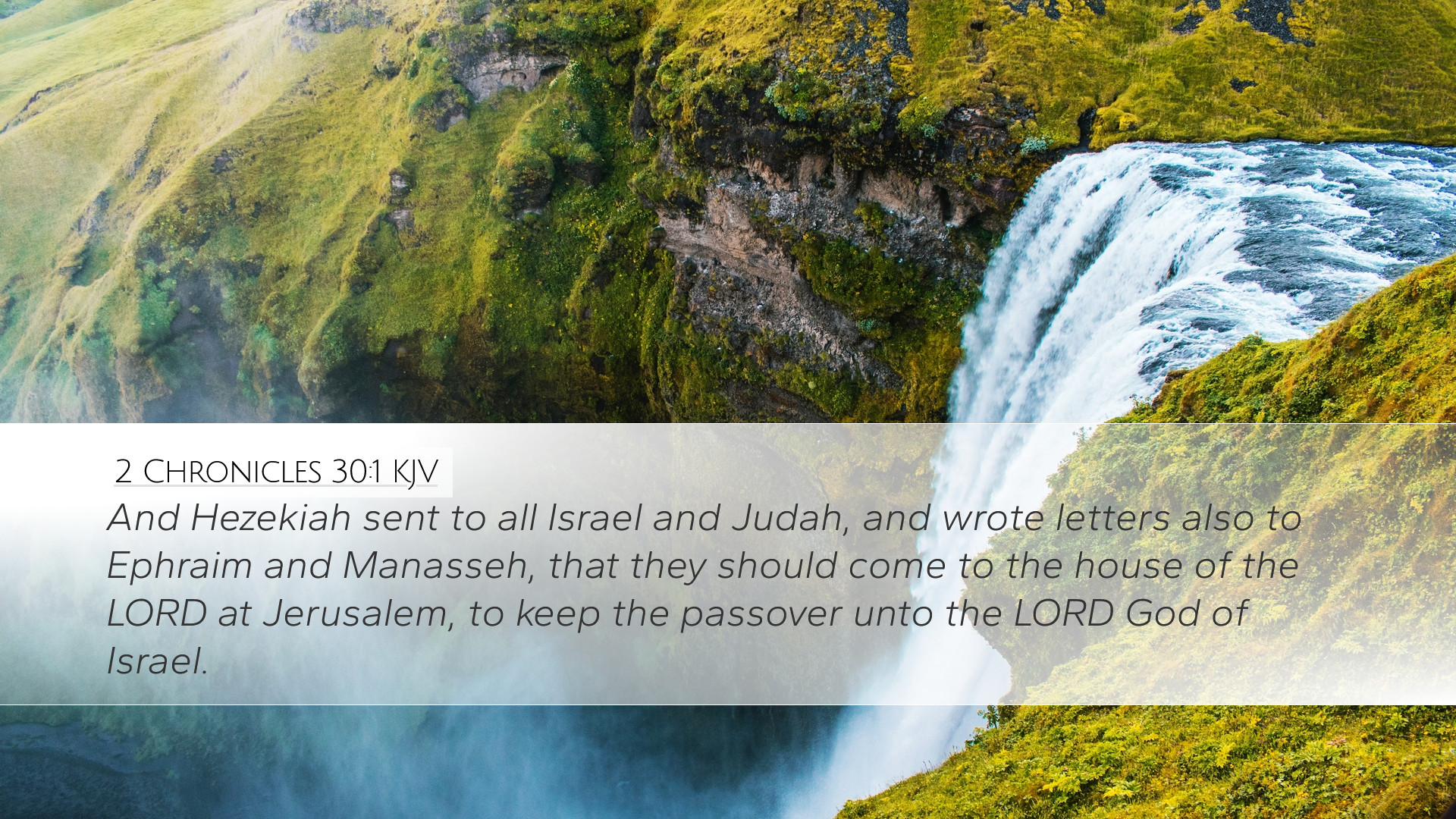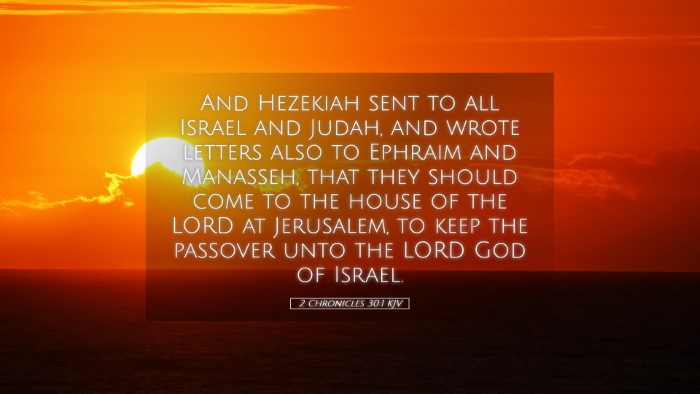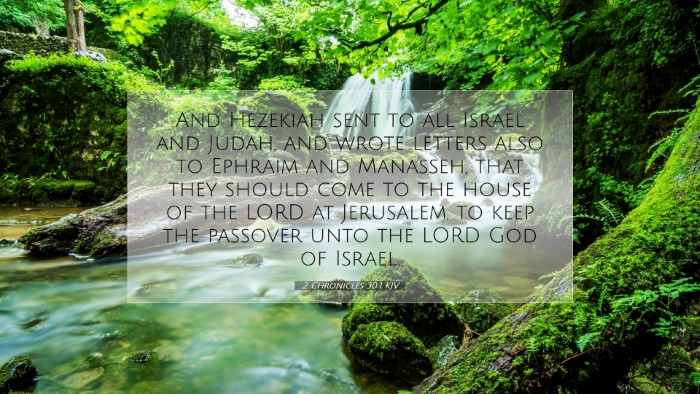Commentary on 2 Chronicles 30:1
Verse Reference: 2 Chronicles 30:1 - "And Hezekiah sent to all Israel and Judah, and wrote letters also to Ephraim and Manasseh, that they should come to the house of the LORD at Jerusalem, to keep the Passover unto the LORD God of Israel."
This verse marks a pivotal moment in the reign of King Hezekiah of Judah, reflecting his desire to restore true worship among God's people after a period of neglect. It opens a narrative rich with theological significance and insights into covenantal community life.
Contextual Background
Before delving into the theological implications, it is essential to understand the context surrounding this invitation to the Passover celebration. Hezekiah ascended the throne following a time when idolatry and neglect of the Torah prevailed in both Judah and Israel. His reforms aimed to reinstate proper worship and obedience to Yahweh.
The Yearning for Unity
Hezekiah's outreach to both Judah and the northern tribes of Israel (specifically Ephraim and Manasseh) indicates a longing for unity among God's people:
- Emphasis on Collective Worship: Hezekiah understood that the observance of Passover was not merely a ritual, but a communal act that strengthened the identity of Israel as God’s chosen people.
- Invitation Over Exclusion: His letters were meant to include those who had strayed, exemplifying God’s grace extending beyond traditional boundaries.
Thematic Insights
This verse and its surrounding accounts provide several themes for consideration:
- The Call to Repentance: Hezekiah's actions serve as a spiritual call to return to God, reminiscent of the prophetic calls throughout biblical history. The Passover symbolizes redemption and renewal.
- Restoration of Worship: The intentional return to the Festival of Unleavened Bread highlights the importance of maintaining God’s commandments as fundamental to their identity as a nation.
- Inclusivity of God’s Covenant: The invitation sent to all, including the marginalized and those who had sinned, illustrates the character of God as one who desires all to come back to Him.
Commentary from Notable Theologians
Matthew Henry
Matthew Henry emphasizes the significance of Hezekiah's letter as a divine initiative to gather the people for sacred celebrations. He notes that Hezekiah’s action was a demonstration of leadership that sought to rally the nation to adhere to their covenant obligations. The invitation was framed not just as a duty but as a privilege to re-engage with their heritage and with the Lord.
Albert Barnes
Albert Barnes highlights the historical context of the divided kingdom, elaborating on Hezekiah's desire to mend the rift between Judah and the remaining tribes of Israel. Barnes posits that this was a time of grace, where Hezekiah called upon those in the north—despite prior hostilities—to participate in a sacred act that harked back to Israel's foundational moments.
Adam Clarke
Adam Clarke points out the Jewish significance of the Passover within the communal and religious life of the nation. He discusses the significance of the unblemished lamb and its typological connection to Christ, further emphasizing how Hezekiah’s call served as an opportunity for spiritual rejuvenation and unity.
The Overall Message
2 Chronicles 30:1 serves to articulate the themes of repentance, divine mercy, and the necessity of unity among God’s people. Through Hezekiah's leadership, we witness a revival that emphasizes inclusivity and intentional worship. This passage compels the believer to consider their own posture towards God and the body of Christ, echoing the timeless call to congregation and communion.
Conclusion
In summary, 2 Chronicles 30:1 encapsulates a rich narrative concerning the faithfulness of God amidst times of disobedience and division. The passage invites pastors, students, and theologians alike to engage deeply with the notions of repentance, restoration, and the overarching narrative of God’s covenant with His people.
This verse challenges all believers to reflect upon their communal responsibilities in worship and spiritual revival, echoing Hezekiah's beautiful invitation to return to the Lord and partake in the blessings of His covenant renewal.


